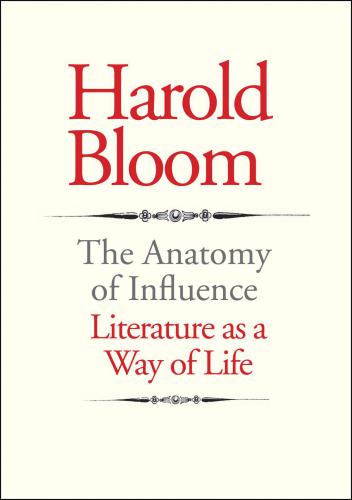
The Anatomy of Influence
Literature as a Way of Life
کتاب های مرتبط
- اطلاعات
- نقد و بررسی
- دیدگاه کاربران
نقد و بررسی

March 15, 2011
The distinguished critic again examines the interactions among writers that have been the main focus of his attention since The Anxiety of Influence (1973).
As in that seminal work, Bloom (Humanities and English/Yale Univ.; Fallen Angels, 2007, etc.) takes a decidedly Freudian view of literature, depicting each generation of artists struggling with the titans of the past to carve out their own place in the pantheon. Ranking matters to Bloom; it's not enough to proclaim Beckett, Joyce, Proust and Kafka "the masters of prose fiction in the twentieth century"—they must be judged as "transcending" Thomas Mann, Joseph Conrad, D.H. Lawrence, Virginia Woolf and William Faulkner. His audience is "those dissident readers who...instinctually reach out for quality in literature, disdaining the lemmings who devour J.K. Rowling and Stephen King as they race down the cliffs to intellectual suicide in the gray ocean of the internet." Looking beyond sentences like that, and beyond Bloom's trademark swipes at feminists and Marxists, readers (dissident or otherwise) will find his usual closely argued exegeses of the writers he loves—and that love goes a long way toward atoning for his aggressive contentiousness. He traces the poetic tradition stretching from Shakespeare through Shelley, Browning and Yeats to Walt Whitman, Bloom's "American Homer," whose epic presence shadows Wallace Stevens, Hart Crane and such contemporary poets as James Merrill and John Ashbery. Unsurprisingly, since Bloom prefers poetry "free of all history except literary biography," he stresses existential themes: the nature of self, the soul's quest for meaning, the omnipresence of death, our final destination. The octogenarian clearly has his legacy in mind as he strives to reject old charges of misogyny and exclusivity; he makes reference to his many Asian American students, and a few female names (Emily Dickinson, Elizabeth Bishop) have slipped into his references, if not his full-scale analyses. But we wouldn't want Bloom to be anyone but Bloom: an old-fashioned literary critic passionately committed to art for art's sake.
An autumnal summing-up, winding through "the labyrinth of literary influence" to conclude, "[t]hat labyrinth is life itself."
(COPYRIGHT (2011) KIRKUS REVIEWS/NIELSEN BUSINESS MEDIA, INC. ALL RIGHTS RESERVED.)

May 1, 2011
As defender of the Western canon, the controversial Bloom (Sterling Professor of the Humanities, Yale Univ.; How To Read and Why) has no equal. Here he continues his investigation into literary interconnectedness by revealing how writers struggle with the works of those who came before. He cites Shakespeare as the greatest writer in the English language. Moving forward chronologically from the 16th through the 20th centuries, Bloom analyzes the works of such giants as John Milton, Samuel Johnson, Percy Bysshe Shelley, and Alfred, Lord Tennyson, illustrating their connections to Shakespeare. Bloom examines Walt Whitman's poetry in depth then considers James Joyce, D.H. Lawrence, Stephen Crane, and Wallace Stevens, as well as contemporary poets, e.g., A.R. Ammons, John Ashbery, and Mark Strand. VERDICT Unfortunately, the book lacks much serious consideration of nonwhite and women poets. Bloom acknowledges Emily Dickinson, yet never accords her the status she deserves, although Amy Clampitt's "Beach Glass" rates a short analysis. Yet his commentaries penetrate the mysteries of influence and provide enough evidence to convince those skeptical of the "Western canon" approach. Bloom's elegant and accessible writing, punctuated here with his discussions of his own experiences with these works over time, will be welcomed by serious readers who don't mind his bias.--Nancy R. Ives, SUNY at Geneseo
Copyright 2011 Library Journal, LLC Used with permission.

























دیدگاه کاربران